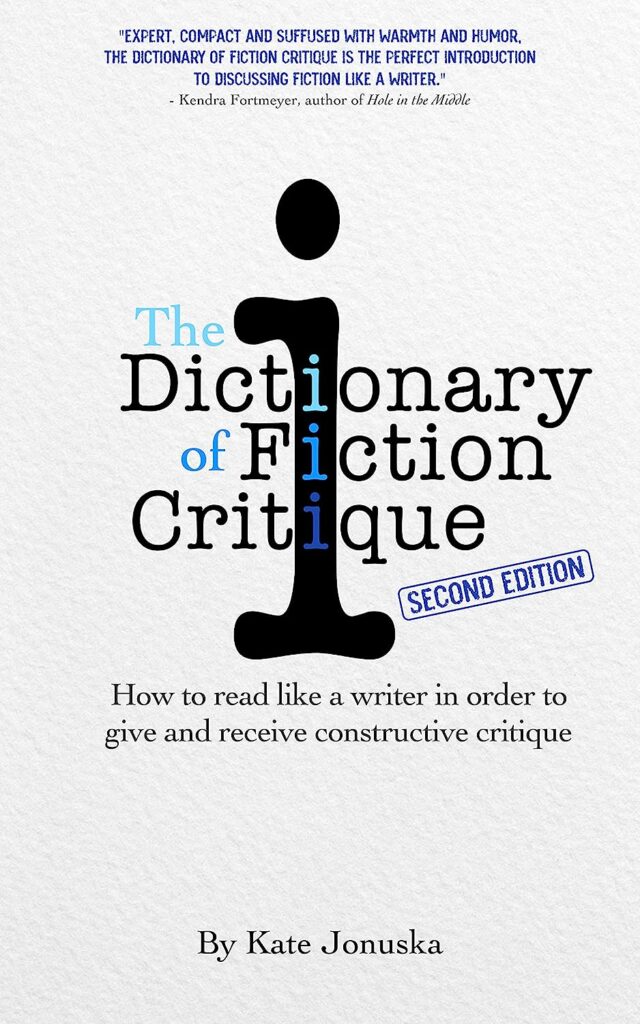Kate Jonuska
In an ideal world, stories would flow from the author's pen and arrive whole on the page, sparkling with genius. Far less romantic is the truth that writing includes more failing, editing, deleting, cursing, polishing and re-writing than writing itself. Rather than being the product of pure talent or inspiration, writing fiction is a craft that can be honed through practice and hard work — often done alongside and with the support of other writers in a critique setting.
Part A-Z dictionary and part writing crash course, The Dictionary of Fiction Critique is your survival guide for the wild, wacky world of the fiction critique group. The language herein demystifies the creation of story, explains how to read like a writer, and provides the language with which to discuss your craft with peers, including terms like:
- Foreshadowing
- Head hopping
- Omniscience
- Genre dissonance
- Reality violation
- Ten-page syndrome
- Info dump
- Talking heads
- Passive voice
- Immersion
- Piggyback
- The to-be's
New in this edition!
- Now published by 30th Street Press! The Dictionary of Fiction Critique, second edition, will be available for wider distribution to bookstores, libraries and other venues.
- New vocabulary words! Updated lampshades and spotlights, washing dishes and more. Check out dozens of definitions not included in the first, instructional section of the dictionary in the A-Z listing in the back.
- More detailed discussions of locating a critique group, passive language, and the nuances of action, tension and conflict.

